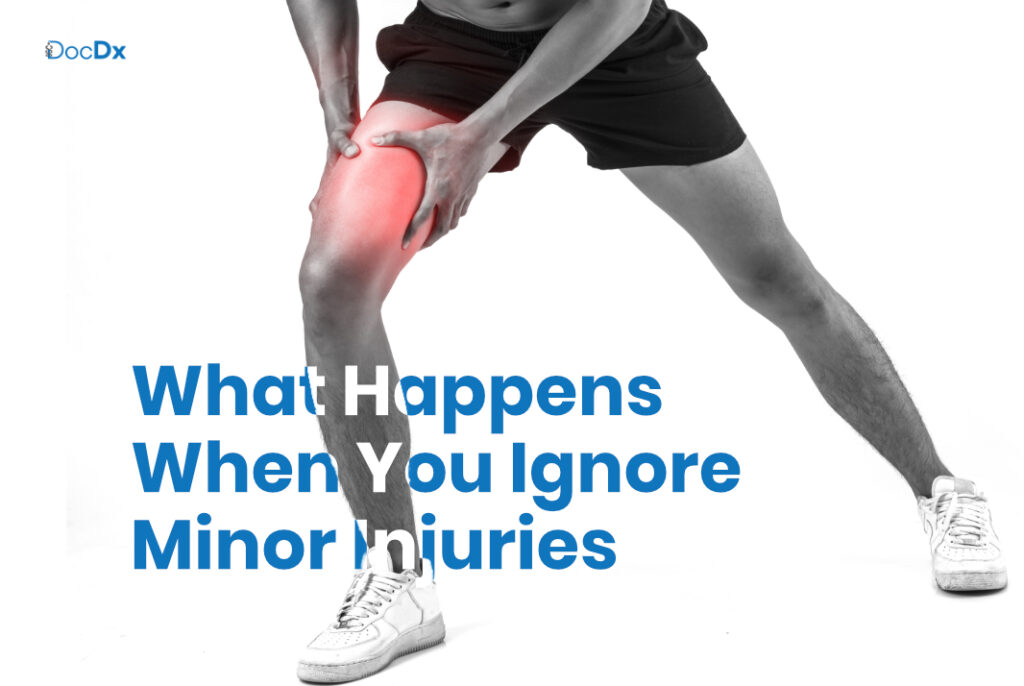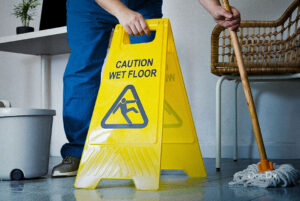Look, we’ve all been there. You nick your finger while making a sandwich, roll your ankle getting out of bed (don’t lie, it happens), or maybe you graze yourself pulling a hot tray out of the oven. It’s easy to shrug it off and think, “It’s no big deal.” right? But small injuries can sometimes lead to bigger problems if ignored. Infections can develop, swelling can worsen, and before you know it, you’re searching online for things like “why is my toe turning purple?”
Let’s get one thing straight: ignoring little injuries is like hitting snooze on a smoke alarm. Sure, maybe nothing burns down, but do you really want to risk it? Even small stuff can spiral into something way nastier if you blow it off.
This guide will explain why it’s important to take minor injuries seriously, how to care for them at home, and when to discuss them with your primary care provider.
What Are Considered as a Minor Injury?
Minor injuries may include:
- Small cuts and scrapes
- Bruises
- Minor burns
- Sprains and strains
- Shallow punctures
They may not seem alarming at first glance, but without proper attention, these can develop into bigger health problems.
Why People Downplay Small Injuries
It often comes from a “power through” mindset. In our busy lives, we tell ourselves, “It’ll heal on its own.” Unfortunately, this mindset is what can turn a minor issue into a major health concern. Postponing evaluation can lead to infections, worsening pain, or irreversible damage.
What Can Happen If You Ignore Minor Injuries
Even a small cut can backfire if not treated correctly:
- Infections – Bacteria thrive in open wounds—especially if not cleaned and protected.
- Inflammation – Pain, swelling, and redness can worsen.
- Delayed Healing – Recovery takes longer than necessary.
- Chronic Issues – Untreated sprains can lead to instability and recurring injuries.
The Body Heals Itself — But Only to a Point
Our bodies are great at repairing damage, but they’re not invincible. Small injuries left untreated can overwhelm the body’s defenses. Proper cleaning, care, and monitoring are key.
Infection: The Silent Risk
Minor wounds are a perfect entry point for bacteria. Watch for:
- Redness spreading from the wound
- Warmth, swelling, or pus
- Pain that worsens instead of improves
- Fever or chills
- Difficulty moving the injured area
If you notice these symptoms, contact your primary care provider promptly — infections can spread quickly, especially in people with weakened immune systems.
Common Mistakes to Avoid
- Using harsh chemicals like alcohol directly on deep wounds
- Applying toothpaste or butter to burns
- Ignoring swelling or bruising
- Wrapping wounds too tightly
How to Care for Minor Injuries at Home
Cuts and Scrapes
- Rinse with clean water
- Use mild soap
- Apply antiseptic
- Cover with a sterile bandage
Sprains and Strains
- Rest the affected area
- Ice for 20 minutes at a time
- Compress with an elastic bandage
- Elevate to reduce swelling
Minor Burns
- Cool under running water
- Apply aloe vera or burn ointment
- Cover loosely with sterile gauze
If symptoms persist or worsen, schedule a primary care visit to ensure proper healing.
Prevention Tips From a Primary Care Perspective
Home Safety
- Use non-slip mats in kitchens and bathrooms
- Keep sharp tools stored away
Workplace Injury Prevention
- Follow ergonomic guidelines
- Wear appropriate footwear
Healthy Habits
- Maintain strength and flexibility to reduce risk of falls or strains
When to Talk to Your Primary Care Provider
Don’t wait if you experience:
- Persistent pain or swelling
- Limited movement
- Wounds that won’t heal
- Any signs of infection
Your provider can help prevent complications and address underlying health concerns that may slow healing.
The Role of Primary Care in Injury Management
Primary care providers offer:
- Early evaluation to prevent escalation
- Follow-up to track healing progress
- Preventive screenings during annual checkups
Why This Matters for Seniors and Children
- Seniors – Thinner skin and slower healing increase risks.
- Children – They may not notice or communicate symptoms clearly.
Extra caution and regular check-ins can make all the difference.
The Long-Term Impact of Neglecting Minor Injuries
Small, untreated injuries can:
- Lead to chronic pain
- Cause mobility limitations
- Increase the chance of re-injury
Conclusion
Small injuries are not small problems if ignored. Quick, informed action keeps you healthier, saves time, and prevents bigger health concerns down the road.



